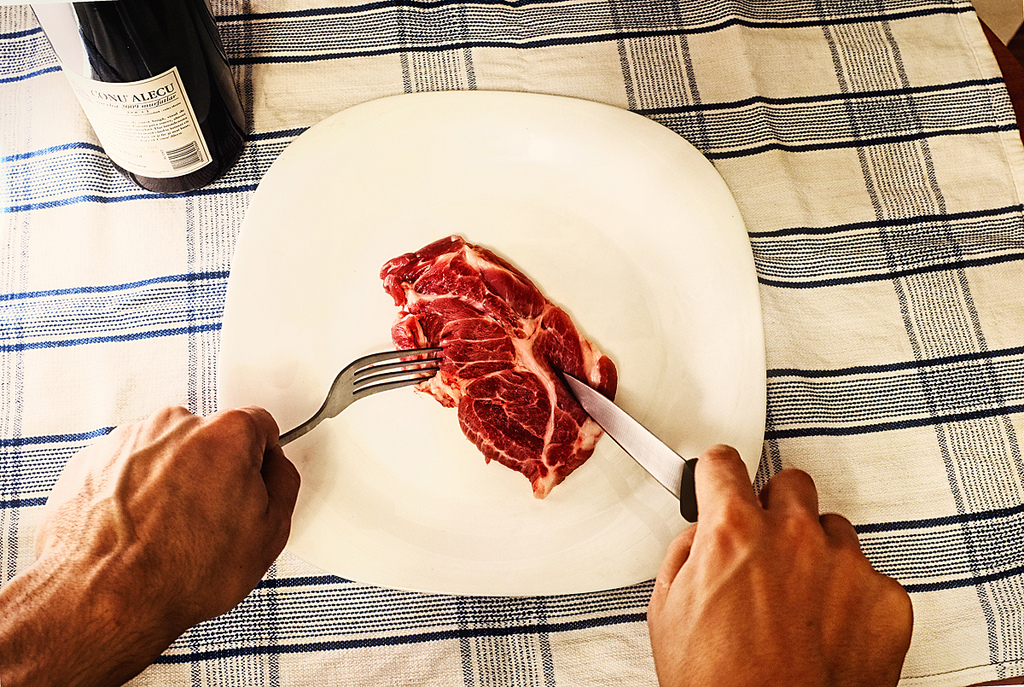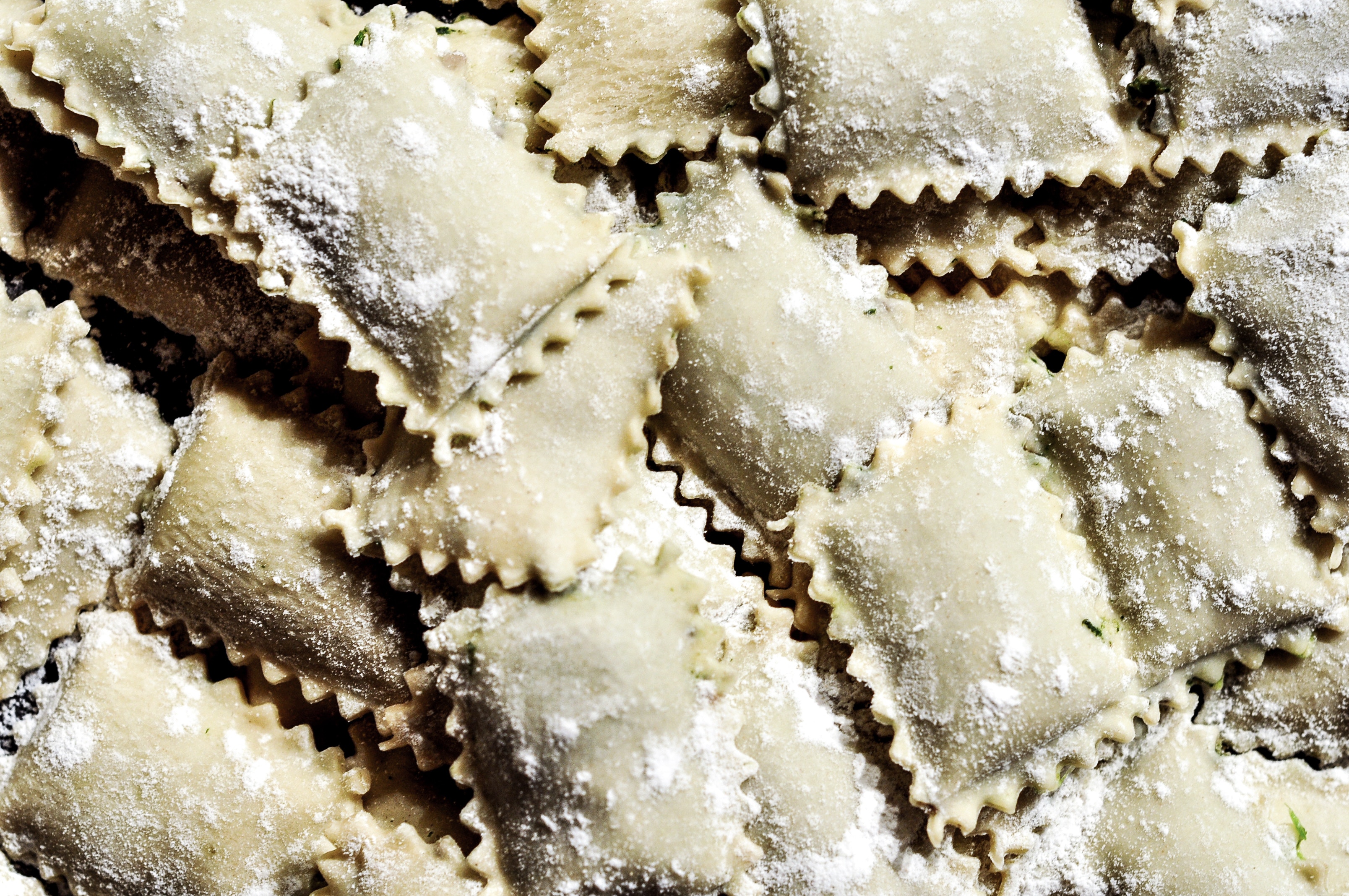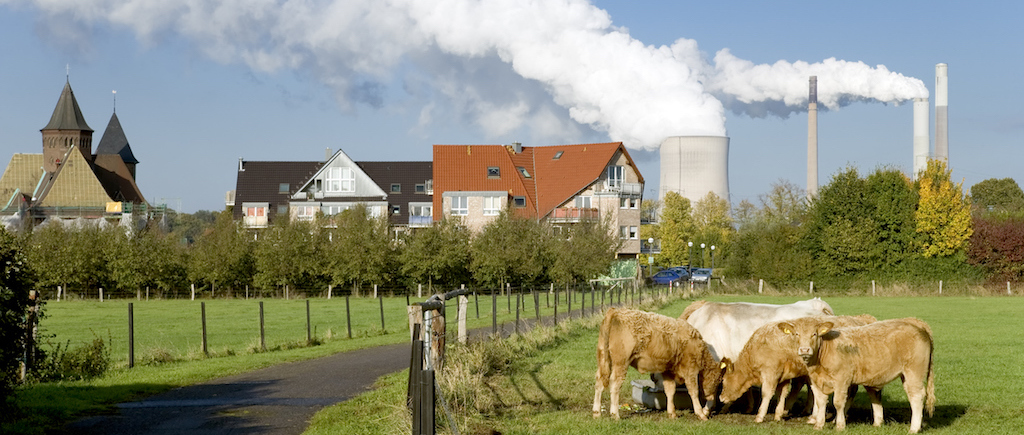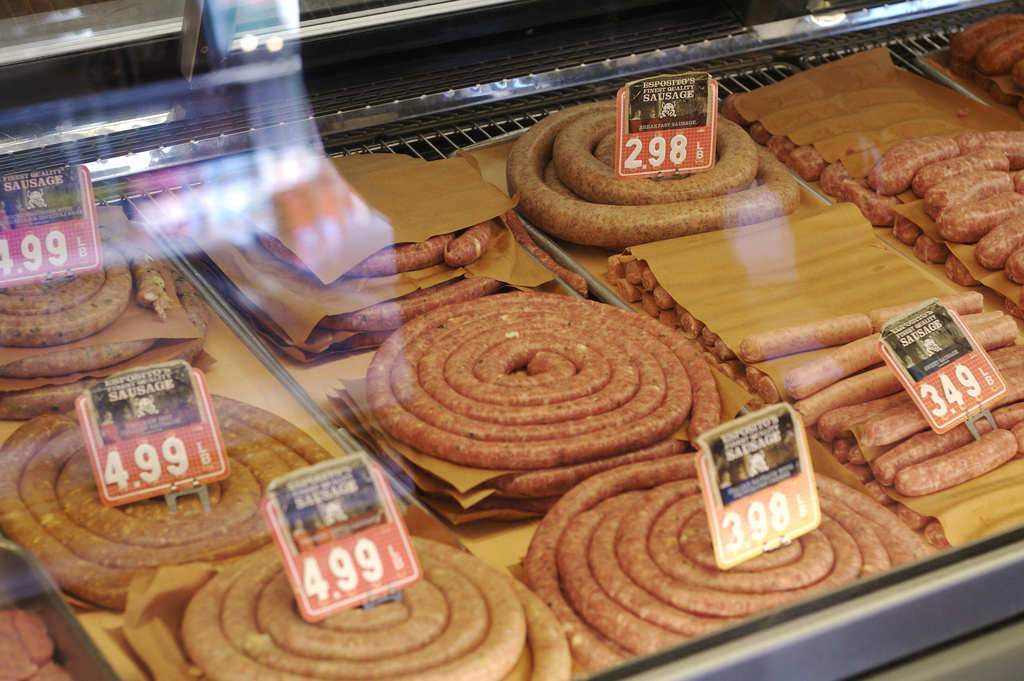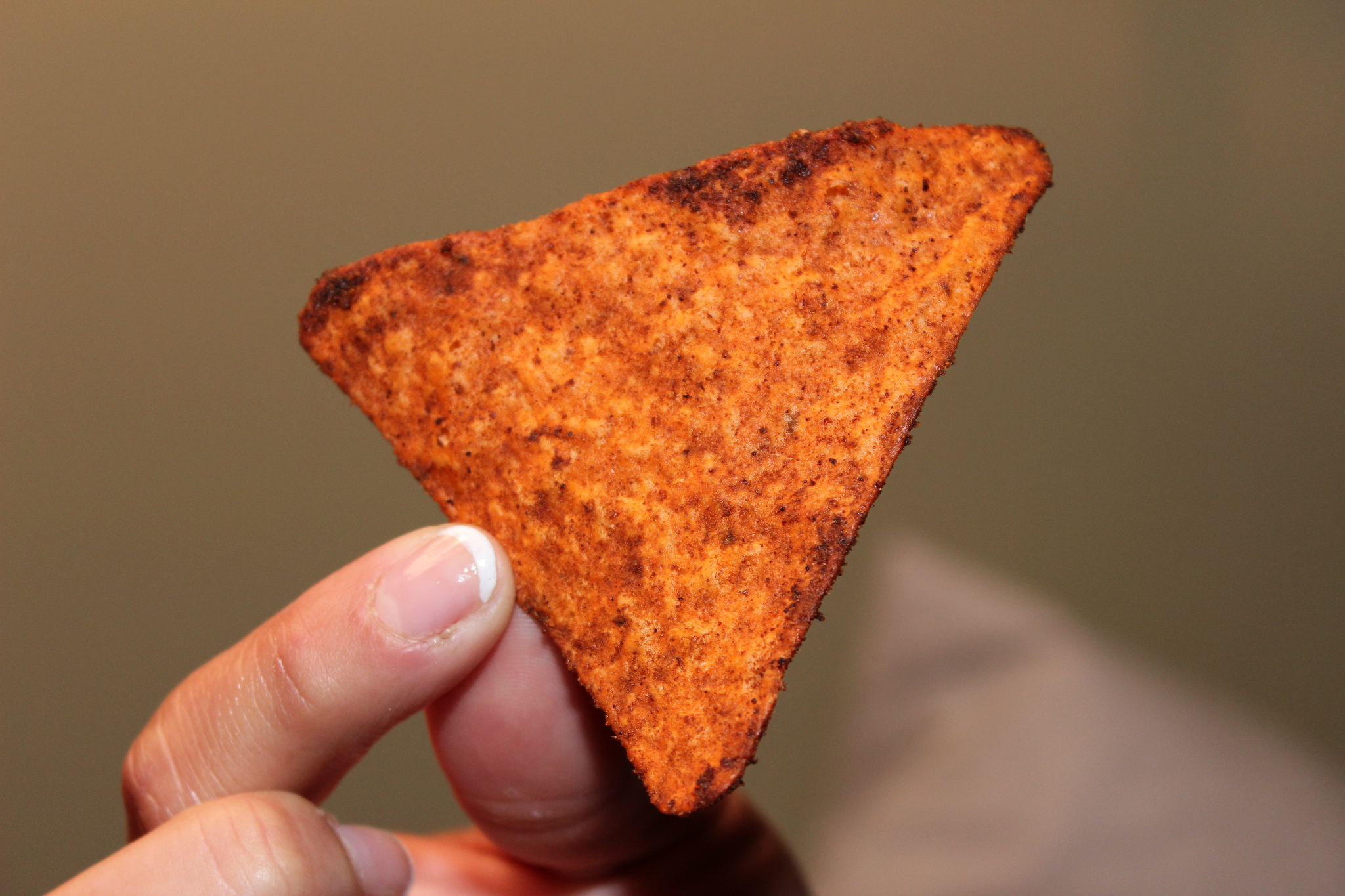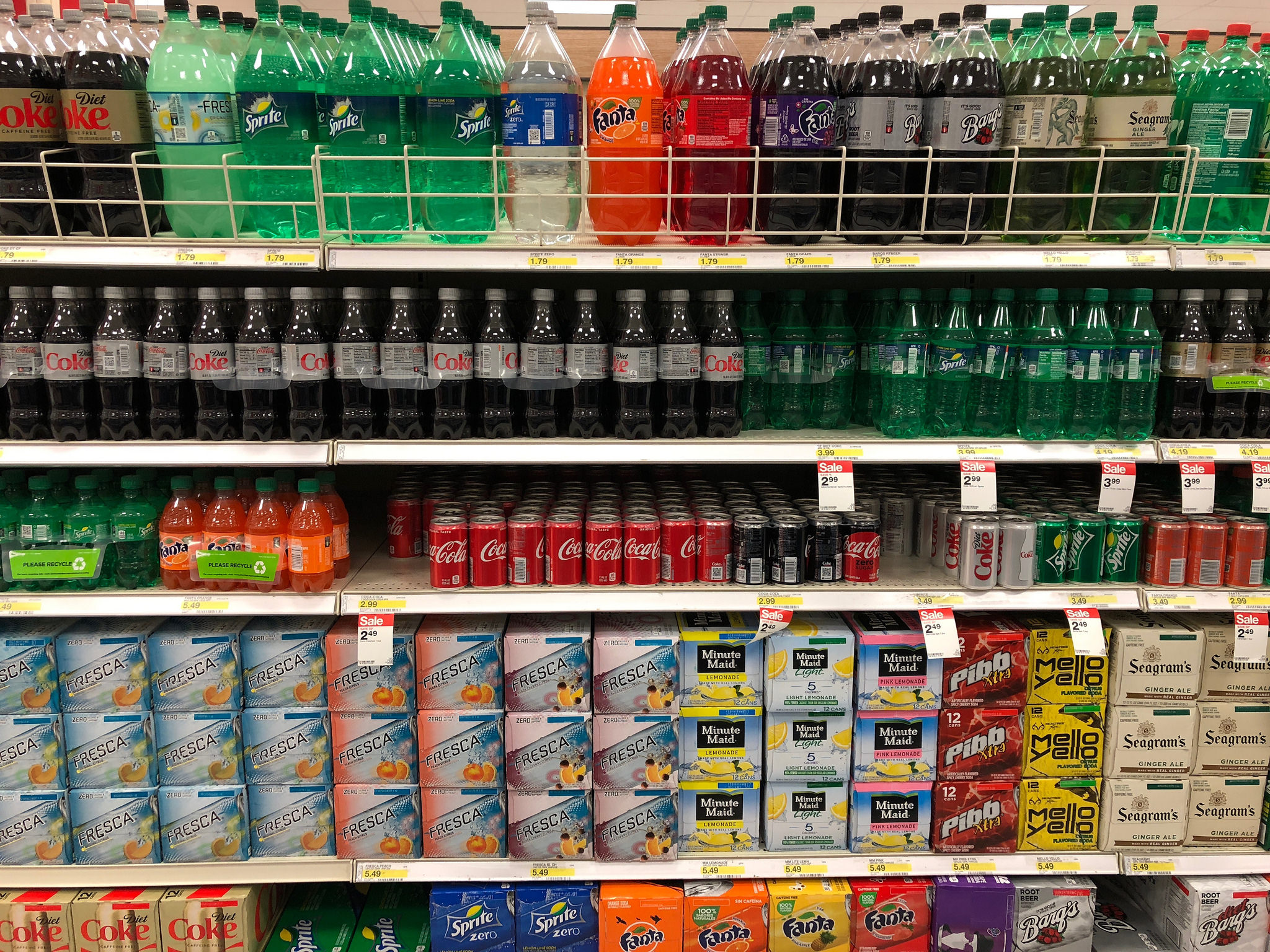This is the web version of a list we publish twice-weekly in our newsletter. It comprises the most noteworthy food stories of the moment, selected by our editors. Get it first here.
1. Another year, another race to coin the most evocative winter weather catchphrase. If you’ve been “bomb cyclone”d in the Northeast—or elsewhere—USDA offers up this food safety primer for all your prepper needs.
2. Speaking of USDA: Its new report on millennial food purchasing habits finds that members of the mill-generation eat in restaurants or bars about 30 percent more often than eaters from any other. They’re also spending less on eating at home and making fewer trips to the grocery store. Why? The report’s authors credit the value millennials place on convenience, such as same-day grocery delivery service, and “experiential attributes,” or factors they think enhance the experience of eating and drinking. (Think “organic” food or artisanal alcoholic beverages.) The report’s authors say their findings are a compass for the future of food demand. If that’s the case, here’s a free business suggestion for the delivery services of tomorrow: organic, fair-trade wine, delivered in under an hour, and accompanied by a special corkscrew useful for unscrewing the “screwed generation.”
3. The most revealing thing about USDA’s report, though, may have been the cover. Behold, a millennial as seen through the eyes of the federal government:

4. So millennials are dining out more. But surely the Ken Friedman misconduct news shortened their wait times at his famed New York City eatery The Spotted Pig? Apparently not. In a blistering editorial, New York Times food critic Pete Wells asked why the restaurant industry has not yet faced a #deleteuber-style backlash. “Something has gone grotesquely wrong when chefs brag that the chickens they buy lived happy, stress-free lives,” he writes, “but can’t promise us that the women they employ aren’t being assaulted in the storage room.”
5. Further to worker protection: A Bloomberg investigation reveals the gruesome reality for “third-shift” slaughterhouse sanitation workers—many of whom are undocumented immigrants—employed by cleaning contractors. These intermediaries present quite an opportunity to big processors like Tyson Foods, Inc. by providing outsourced sanitation services while also absorbing accountability for job-related injuries. The story follows a worker named “Martha,” who, after having her arm caught in a conveyor belt, was refused workers’ compensation benefits and fired. It’s a stark, disturbing glimpse into what are described as “the harshest and most dangerous conditions in American industry.”
6. Feeling carnivorous? No? Doesn’t matter: Domestic meat production is expected to surpass 100 billion pounds for the first time, Bloomberg also reports. Higher demand and lower feed costs are driving this growth, despite increased awareness of the ethical and environmental impact of producing livestock. What’s more impossible than the Impossible Burger? Weaning Americans off animal protein.
7. …Or chocolate? Maybe you saw the trending headline from Business Insider: “Chocolate is on track to go extinct in 40 years.” If so, relax. Snopes reports a discrepancy between what the headline implied and the actual point at which scientists consider extinction possible (an absence of sightings for 50 years). The article itself cited a potential 2.1 degree temperature change in Africa that it said would threaten the cocoa crop in Côte d’Ivoire and Ghana. The good news is that cocoa plants aren’t indigenous to Africa. The bad news is that, as crops become more difficult to grow, the cost to buy or even produce such plants is more uncertain.
8. And while we’re on the subject of expense: Sacré bleu! A wild winter truffle has made its first-ever appearance on a hotel rooftop in Paris. Just as the aromatic fungus doubles in price to €5,000 euros a kilo (or $6,000 US), the French are celebrating that the birth of truffle growth in the capital city may actually be due to the particular micro-climates that rooftop gardens produce. The Local reports that Paris plans to expand its urban farming program to include 247 acres of rooftop gardens in the next two years. Perhaps this will spur a boom in the “stronger and muskier,” but slightly more pedestrian variation of the Perigord truffle that was discovered on the hotel rooftop. Shall we brand that one an urban luxury?
9. Finally, let them eat their tax bill? In an op-ed in The Montana Standard, the Montana Food Security Council took elected officials to task for passing December’s tax bill, which it claimed “will worsen food security in our state.” The council predicts that raising the deficit via the tax bill will all but guarantee cuts to the Supplemental Nutrition Assistance Program (SNAP, formerly food stamps) in the future. The federal tax plan, the council argues, would induce the state to tack on more budget cuts, which would further hamstring social assistance programs in the state. Last call for overhaul: The council wants readers to reach out to representatives and rally against the legislation.
